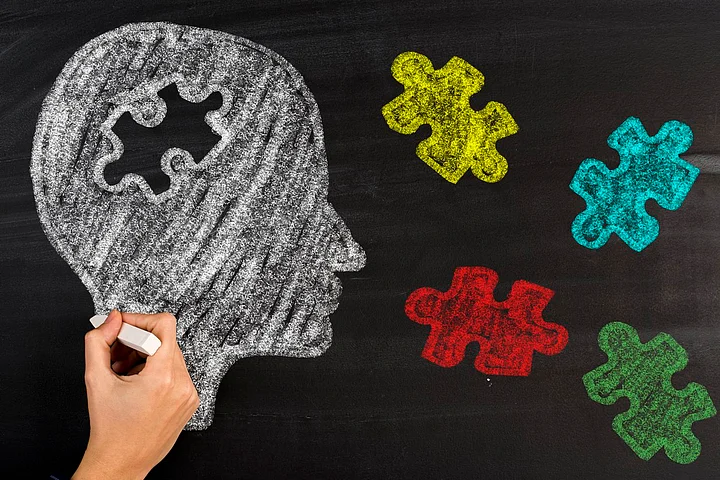Indians are struggling to keep their minds healthy and at peace. Data from the World Health Organization states that in 2015 over 55 million Indians were depressed.
The numbers only serve to accentuate the need of the hour - that is - seeking psychological help. It’s important to invest the care of your mental well-being in safe hands. But, getting professional counselling, therapy or psychiatric help is not a cheap task either. So how do you start and where do you start when you seek help?
Too caught up to read? Listen to the story here:
Counsellor, Psychologist or Psychiatrist?

First things first, it’s important to know the difference between the three. The condition of the patient determines which of them is to be sought. There are some markers that can be used to identify the three.
Counsellor: All counsellors in India have to have at least a BA and a Master’s degree in psychology. They provide counselling and therapy, but cannot prescribe medication.
Clinical Psychologist: A psychologist has a BA, Master’s and a research degree like MPhil, in psychology, points out Dr Sameer Malhotra, a leading psychiatrist of New Delhi. A psychologist often addresses anxiety, melancholia, phobias, repression, among other things, in patients, but using only psychotherapy. They also can’t prescribe medication.
Psychiatrist: As a medical doctor, a psychiatrist studies mental disorders from a place of internal bodily chemistry and physiology, different from the behavioural analysis of a psychologist. As Dr Ranna Parekh says in this article:
Theirs (psychiatrists) is going to be a diagnosis of exclusion. For instance, before we call someone depressed, we’re going to make sure they don’t instead have some vitamin deficiency or thyroid problem.
Dr Malhotra adds that a psychiatrist has to have an MBBS degree along with an MD or an equivalent postgraduate degree. They use both psychotherapy as well as medication in their treatment, along with studying the brain and providing wholesome treatments of clinical syndromes.
Of the three, only a psychiatrist can provide prescriptions. However, all three of these, counsellors, psychologists and psychiatrists work in tandem, especially in a country like India where health experts are not directly proportionate to the population of the country and its demands.
When It Comes to Finally Reaching Out

The three can also be seen as not definite, but loose starting points as to who to approach depending upon the stage and intensity of the mental problem. As a result, a counsellor is a good starting point when reaching out for help.
Rajnilata (name changed), who has tried three mental health experts over the last three years (two in India, one in the UK), has the following to say:
The one thing that helped the most is talking to other people and figuring out the right option for myself thereafter. It’s also important to be aware of the costs and whether you’re comfortable with paying the per session fee over a long period of time.
When it finally comes down to zeroing in on a mental health practitioner there are several other guidelines to be kept in mind:
- One of the most reliable ways of getting a good therapist is word of mouth. Reach out to friends and families who may have taken therapy in the past. You can also take a look at reviews of therapists online.
- Is there a gender you’d be more comfortable talking to? Remember this is a face you have to bare your deepest secrets to. There is nothing wrong with having comfort-related gender preferences, as is also suggested by this article.
- An average therapy session would cost you something between Rs 1,000-Rs 3000 per session. Most professionals won’t be willing to negotiate so take this factor into account. The price should be something that you can sustain.
- Don’t confuse laziness with convenience. Simply because a therapist is located close to your house is not reason enough to go to them. Invest time in your mental health.
- Make sure you know your therapist really well. Know their degrees and qualifications, what licenses they have. Also, look into if they have any specialisations and if those specialisations are similar to the kind of help you’re seeking.
- Let’s all normalise nervousness, please. It’s natural to feel nervous before interacting with a therapist.
- And when all else is done, just rely on plain instinct. It’s a good idea to take a trial session with them and then assess how does it make you feel. Are you feeling lighter? More isolated? Was the experience cathartic or burdensome? Sometimes even a phone call would give you an idea about the kind of person they are.
All of these rules and suggestions might seem daunting, but it’s important to not only take that first step towards mental well-being, but to also be adequately prepared for it. Once that is done, rest will (hopefully) follow.
(With inputs from Psychology Today.)
(At The Quint, we are answerable only to our audience. Play an active role in shaping our journalism by becoming a member. Because the truth is worth it.)
